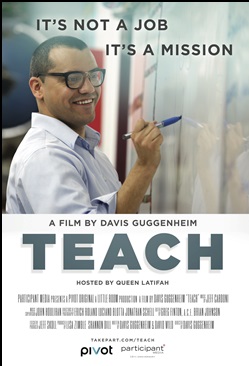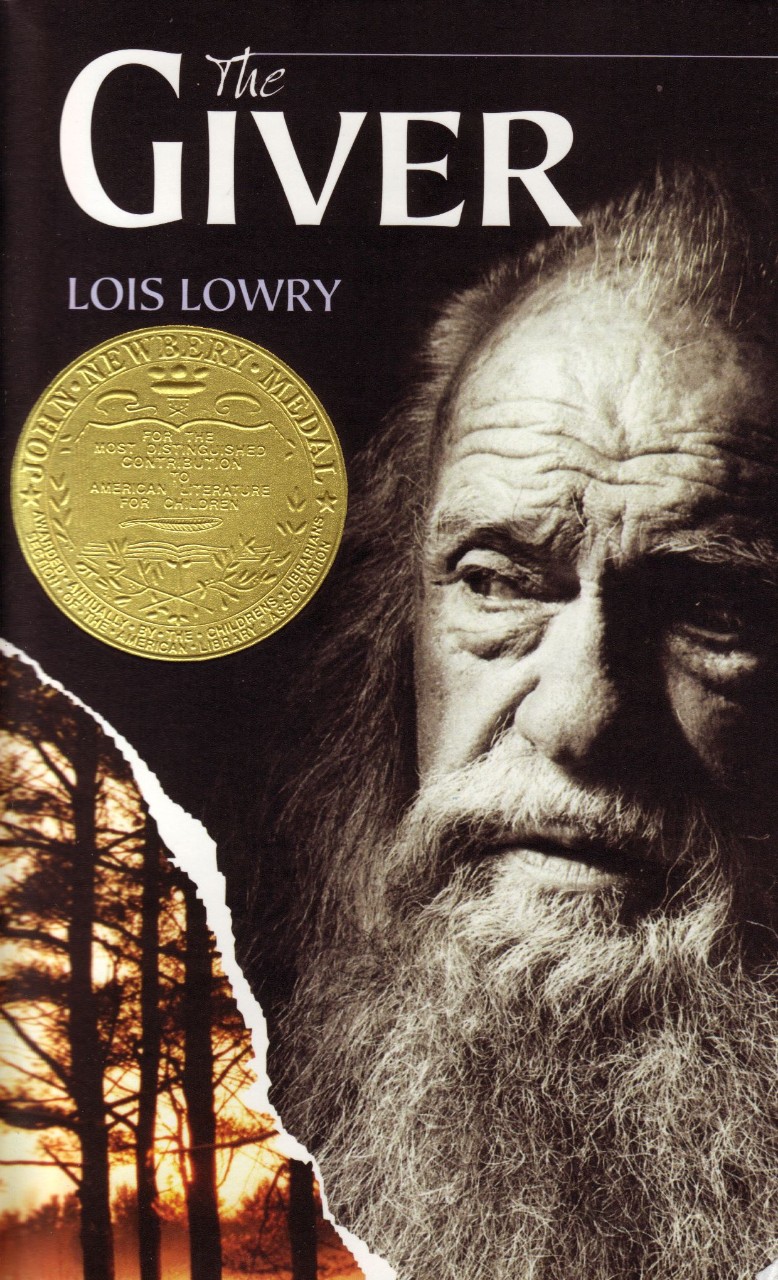In the documentaries, Waiting for Superman and TEACH, Davis Guggenheim paints teachers in two very different lights. In Waiting for Superman, Guggenheim does not claim teachers are heroes and instead claims teachers are the main reason for America's poor education system. Therefore, he suggests that a teacher can only be declared a hero unless they work extremely hard at their job and produce good results. Meanwhile, in TEACH, Guggenheim describes five teachers just as that- hard working individuals who go above-and-beyond what their jobs seem to require. In James Trier's (2015) article, "The Dialectical Progression: From The First Year and Waiting for “Superman” to TEACH," he too adds to Guggenheim's claim about teachers as heroes;
...teachers are not doing enough unless they are devoting all of their time outside
of school planning lessons and units and doing some kins of rigorous evaluation
of student work; unless all of their students succeed academically; unless
entire groups of students do well on standardized tests; unless one has contacted
all the students' parents...
What makes a teacher a good teacher then? Who should be the one to evaluate them? Guggenheim leaves this up to his audience while also advocating that teachers are needed. Particularly in TEACH, Guggenheim is advocating for people to become teachers more so than in Waiting for Superman. By following five teachers, and revealing the reasons why it is rewarding for them is crucial for people who are interested in teaching. Even though the profession may be difficult and time consuming, there are instances that can be rewarding.
In Waiting for Superman, Guggenheim complicates the hero role for teachers and actually suggests teachers are a major contributing factor of the "failed" American education system. For he claims teacher unions and tenure are the reasons for education reform to not occur. I do not agree with his argument completely for I believe there are multiple aspects other than poor teachers that contribute to poor education. One of the major criticisms I have for the movie is that it does not talk about the students who genuinely do not care about school or how parents contribute to the system.
In Barnett Berry's article, "Good Schools and Teachers for All Students: Dispelling Myths, Facing Evidence, and Pursuing the Right Strategies," he further complicates Waiting for Superman in the sense that he proposes similar but different ideas to how to "fix" the educational system. One of the suggestions detailed how teachers should have more experience until they are released independently into the work-force. I highly agree with this statement for uneducated teachers simply does not make sense. Although, he seems to suggest that teachers should go through a much more intense evaluation system until they can be certified to independently teach. I find this to be interesting because with my experience in the work-force, you need experience to get experience. How does Berry expect teachers to receive excellent training from amazing teachers if they do not qualify? Most of the time, people are given more credibility as the amount of schooling they have received has gone up in which case they might have a higher chance at getting better training. Although, sitting in classrooms is not the same as interacting with people. Particularly in the teaching profession, being taught how to teach does not mean sitting in a classroom but as Berry claims, teachers need experience to improve. So what can be done?
Trier, J. (2015). The dialectical progression: From The First Year and Waiting for “Superman” to TEACH. In D.P. Liston & I.P. Renga (Eds.) Teaching, learning, and schooling in film: Reel education. New York, NY: Routledge.
Berry, B. (2013). Good schools and teachers for all students: Dispelling myths, facing evidence, and pursuing the right strategies. In P.L. Carter & K.G. Welner (Eds.) Closing the opportunity gap (pp. 181-192). Oxford, UK: Oxford University Press.


/cdn.vox-cdn.com/uploads/chorus_image/image/55557073/AlbusDumbledore_WB_F3_DumbledoreAddressingStudentsInGreatHall_Still_08061_Land.0.jpg)



